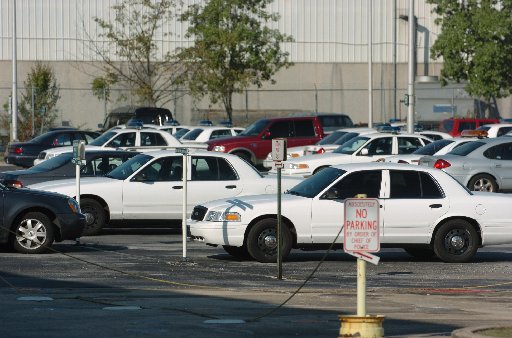Most police officers opt not to pay to have take-home cars
Wednesday, December 29, 2010
Three-quarters of the Chattanooga police officers with take-home cars decided Tuesday that they will park their patrol cars instead of paying the city for their commutes.
"I think that a lot of officers have chosen to turn in their cars out of protest," said Richard Beeland, spokesman for Mayor Ron Littlefield.
Some police leaders have said that not allowing police officers to take their patrol cars home -- or charging them for it -- not only will hurt department morale, it will hurt the department's ability to respond to crime.
International Brotherhood of Police Officers local chapter Vice President Tim Tomisek said the move is unlikely to save the city money and tells officers that the city doesn't care about them.
"There's a million reasons why take-home cars make sense," Tomisek said. "This just triples the bad morale that's already there."
During summer budget meetings, the City Council approved a budget that required the city to recoup some of the cost of the take-home car program.
An early proposal was to charge $50 every two weeks to employees who live within the city and use take-home cars and $75 for those who live outside city limits. But that plan met with serious opposition from police and other city employees.
The city now has decided that employees with take-home cars will pay 20 cents per mile if they live within city limits and 30 cents per mile if they live outside the city. The plan goes into effect with the first pay period of 2011.
Chattanooga's cost of take-home cars is more than $1.5 million and, if city employees pay for the use of the cars, the city finance department estimates recouping $580,000, Beeland said.
As of Tuesday afternoon, 10 of the 28 fire department employees and all Public Works employees with take-home cars, fewer than 20, had decided to pay for their use. Among police officers, 260 of the 351 with take-home cars opted not to pay.
Phil Grubb, president of the International Brotherhood of Police Officers local, repeatedly has raised concerns over response times if police officers don't take home their patrol cars. He pointed to SWAT team members as a specific example.
"Instead of jumping in their car at home or leaving from the grocery store, they're going to have to drive their wife and kids home, then go to the station to gather their gear because they're always on call," he said.
With 351 police cars divided among three shifts, the city and police department must devise a plan for parking the city cars and officers' personal vehicles on city property.
Beeland said there is room in fenced lots elsewhere on city property to safely park cars that won't fit at the Amnicola Highway police headquarters.
"We have property all over the city that we can make available for parking," he said.
City administration and police leaders will look at other options, which may include patrol officers parking near the sectors where they work, he said.
Grubb said alternate parking plans must be developed because otherwise "it's going to cause gridlock at Amni-cola."
Both Grubb and Tomisek questioned the timing of the take-home pay policy implementation. Tomisek said beginning the program near the middle of the fiscal year -- which runs from Oct. 1 through Sept. 30 -- fails to save the money city leaders promised.
Beeland said they decided to start the program in the middle of the fiscal year so employees with take-home cars would be able to plan ahead for the new fees and also to study the cost and decide on a fair rate to charge.
"I know that there are fewer and fewer municipalities offering this perk to their employees, and I can't see it continuing here without a change in the way it's funded, i.e., a tax increase," Beeland said.

